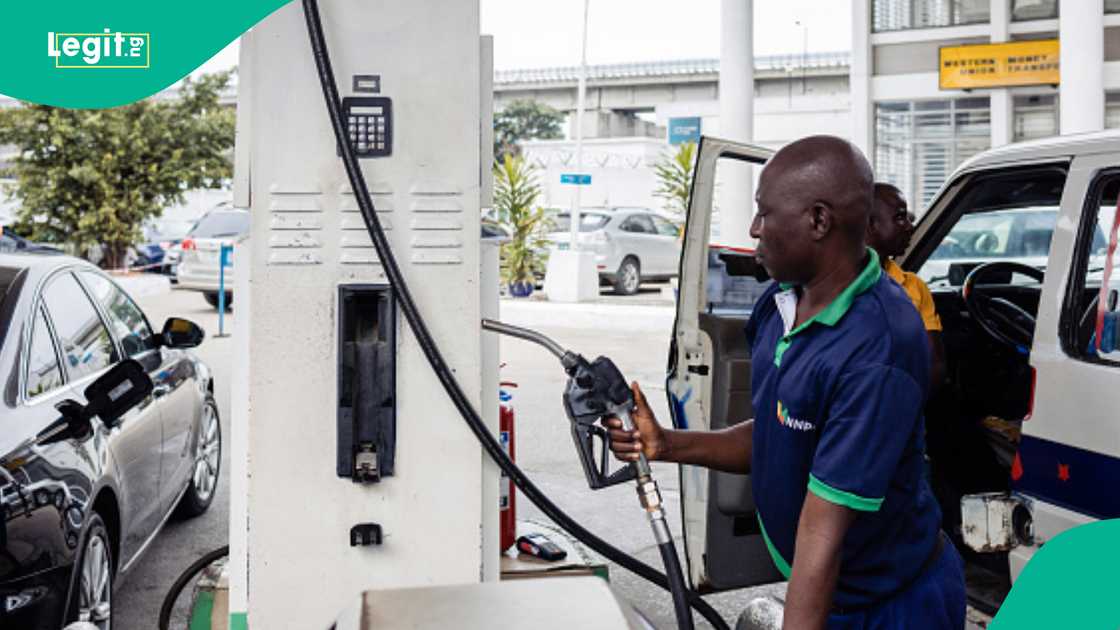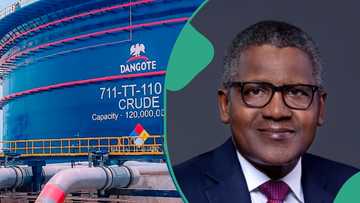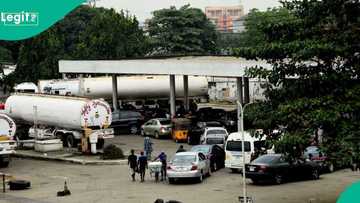Nigeria Drops from Africa’s Top Petrol Importer List as Dangote Refinery Reshapes Energy Market
- The presence of Dangote Refinery has reshaped Nigeria's petrol import, reducing it to a five-decade low
- A new ranking has shown that Nigeria's petrol imports have plummeted, leading to the country losing its position as the top importer
- Experts have attributed the development to the 650,000 bpd-capacity Dangote Refinery, which has reshaped the dynamics
Pascal Oparada, a reporter for Legit.ng, has over ten years of experience covering technology, energy, stocks, investment, and the economy.
For decades, Nigeria carried the paradoxical title of being Africa’s largest crude oil producer and its biggest importer of petrol.
Despite reserves of 37.5 billion barrels and daily production of over 1.5 million barrels, its state-owned refineries operated at minimal capacity.

Source: Getty Images
This forced the nation to spend billions annually on petrol imports.
By late 2024, however, the narrative shifted. The $20 billion Dangote Refinery entered full operations, producing petrol, diesel, and jet fuel from its Lekki hub.

Read also
Dangote fuel distribution fails to lower petrol prices as pump sell N865/litre in major cities
With output meeting over 60% of domestic demand, Nigeria sharply reduced imports, stabilised pump prices, and even started exporting fuel to Ghana, Namibia, and the U.S. East Coast.
The result: South Africa has overtaken Nigeria as Africa’s biggest petrol importer.
The numbers behind the shift
- Fresh data on Africa’s petrol imports shows:
- South Africa – now the largest importer.
- Nigeria – pushed into second place.
- Morocco, Kenya, and Egypt – rounding out the top five.
Just two years ago, Nigeria alone accounted for nearly one-third of Africa’s refined fuel imports.
Today, with Dangote running at 550,000 barrels per day, Nigeria saves close to $10 billion annually in foreign exchange while creating jobs in logistics and distribution.
South Africa’s import burden grows
South Africa’s refining sector tells the opposite story. With Sapref (180,000 bpd) mothballed since 2022 and Engen (120,000 bpd) under new management, the country has been forced to rely heavily on imports.
- Over 60% of domestic demand is now met by foreign supply.
- Import bills are projected to hit $10 billion in 2025.
- Global disruptions, from Red Sea tensions to forex swings, now directly inflate pump prices.
Traders such as Glencore and Vitol have stepped in to fill the gap, but the costs to the South African economy are mounting.
Unless Pretoria revives refining capacity or fast-tracks clean-fuel investments, the country will remain locked in this dependency.
Ripple effects across Africa and beyond
The reversal between Nigeria and South Africa is reshaping trade flows across the continent.
For Europe, Africa’s demand for $17 billion worth of petrol exports is shrinking as Dangote barrels displace their market share.
For Nigeria, import savings are being redirected to support forex stability and GDP growth. For global traders, Nigerian PMS is now reaching markets as far as the U.S. East Coast.
This is more than a regional reshuffle—it is a continental realignment of energy supply chains.
The bigger picture
Nigeria’s fall from the top of Africa’s import chart is not a setback but a sign of progress. With Dangote Refinery providing long-missing refining capacity, Nigeria is on a path toward energy self-sufficiency.
South Africa, however, now faces the costly role Nigeria once carried, weighed down by high import bills and fragile supply security.

Read also
Naira gains big with stronger reserves, lower import costs, fresh confidence in Nigeria’s economy
The country’s choice—revive its refining sector or remain import-dependent—will define its energy future.

Source: UGC
For now, one fact is clear: Dangote Refinery has shifted the balance, and Africa’s fuel trade will never be the same.
Dangote Refinery announces another major feat
Legit.ng earlier reported that the Dangote Refinery reached a peak production capacity of 33 million litres of petrol daily as it reached 550,000 barrels per day production.
The achievement proves that the facility reached optimal production capacity. However, it is about 100,000 barrels per day short of reaching full capacity.
The company had said it hopes to achieve its installed production capacity of 650,000 bpd-capacity in June this year.
Source: Legit.ng



